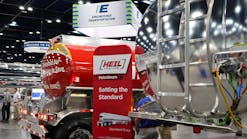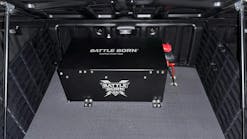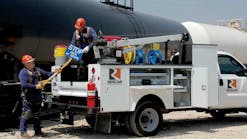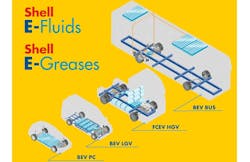Shell recently introduce E-Fluids to support battery electric vehicle (BEV) and fuel cell electric (FCEV) powertrains for commercial light, medium and heavy-duty vehicles. The company says it worked with truck and bus manufacturers to co-engineer bespoke fluids that meet the needs of electric drivetrains for their CV models.
The extension builds on the launch of the Shell E-Fluids range for passenger vehicles in May 2019. With this expansion to the portfolio, manufacturers of all EVs, from passenger cars to vans to larger trucks and buses, now can benefit from the extensive range of specialized Shell E-Fluids and E-Greases, Shell maintained.
“Once added to the sealed environments of BEV or FCEV commercial vehicles, the fluids need to perform at optimum levels over the vehicle’s lifetime; this is why first fill is so important for electric vehicles,” said Carlos Maurer, executive vice president of Shell’s global commercial unit.
According to a recent International Energy Agency report, the commercial road transport sector, which delivers goods to shops and consumers’ homes, as well as providing public transport, emits 8% of global energy-related CO2. The lead to decarbonize road freight is being driven by policy action in markets such as the EU, China, South Korea and Japan, as well as voluntary action by corporations. Both BEV and FCEV solutions will have a role to play because the pathways and timelines for road freight decarbonization will vary by geography, sector and duty sector, Shell said, and E-Fluids are one way Shell is partnering with the CV sector to help deliver decarbonization pathways.
The Shell E-Fluids range for CVs consists of e-transmission fluids, e-greases and battery thermal fluids. To date, CV manufacturers predominantly have relied on a range of fluids developed for internal combustion engines vehicles that do not deliver the necessary performance and efficiency for electric-powered vehicles.
“We have used Shell gas to liquid (GTL) base oil technology for the Shell E-fluids portfolio because its low-viscosity properties allow for higher efficiency in the vehicle’s powertrain,” Maurer said. “Our lubricants research laboratories have focused on delivering cutting-edge fluid solutions to meet the specific electric drivetrain challenges of temperature control, oxidation, copper erosion and thermal conductivity.”










